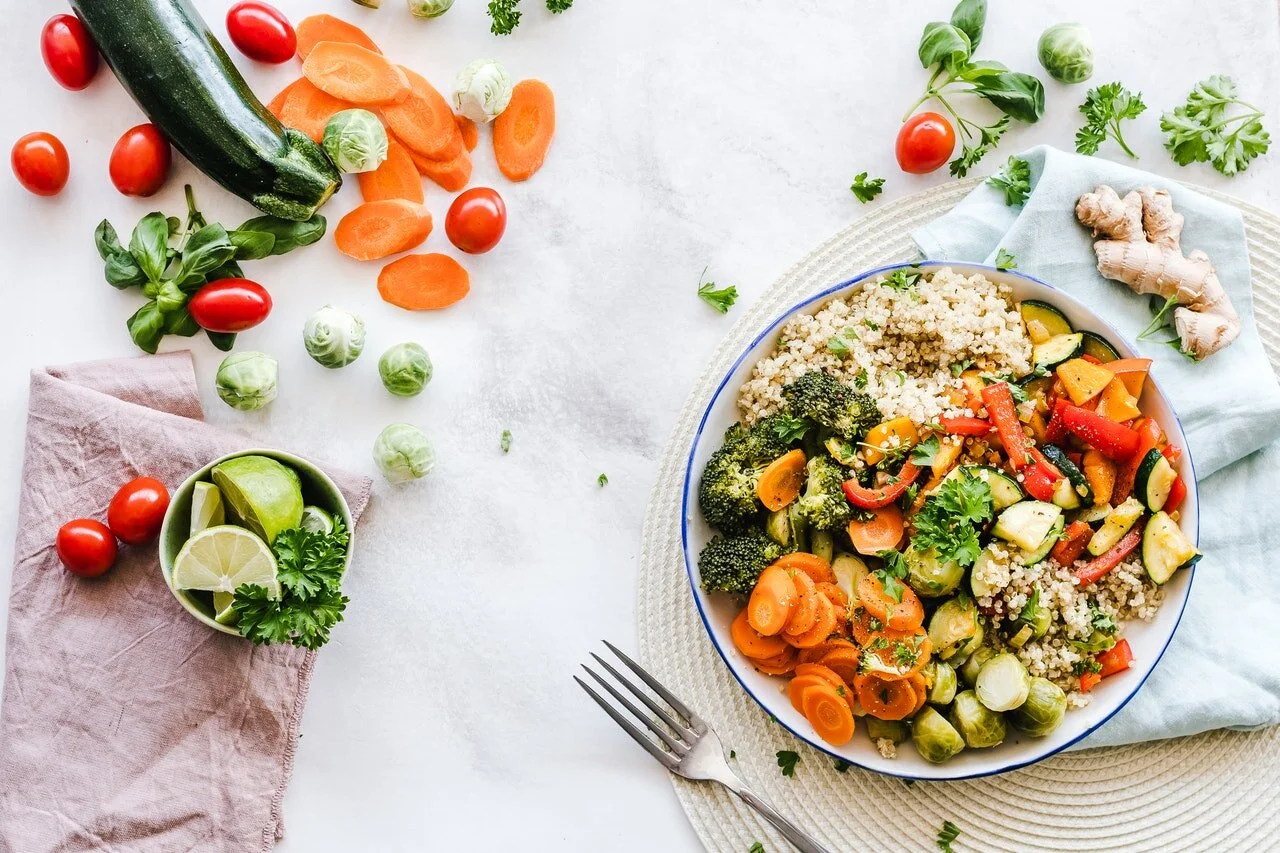Here is the quick weight loss guide I share with my personal training clients to steer their new dietary choices:
- Processed foods (products with additives and preservatives; genetically modified foods; or anything else not in its whole, natural form)
- Dairy (butter, milk, and cheese processed from animals)
- Alcohol
- Refined sugar and artificial sweeteners
- Animal protein with high levels of saturated fat (red meat, pork, wild game, etc.)
- If you need calcium or vitamin d, substitute dairy for dark leafy greens.
- If you need antioxidants, substitute red wine for grapes.
- If you need protein, substitute the protein supplement shake for lean meat, eggs, fish, nuts, etc. Please note that the plant-based option is the least inflammatory in most bodies.
- Meal caloric range: 3-500 calories
- Meals per day: 3-4 every 3-5 hours (allow enough time for proper digestion and absorption)
- 45-55% Plant Nutrients/Vegetables (dark green, starchy, red/orange, etc.)
- 25-40% Protein (lean white meat, fish, soy, eggs, vegetables, nuts, beans, etc.)
- 25% Fiber (beans, legumes, fruit, seeds, vegetables, etc.)
*****Although I haven't specifically mentioned it, you should still be mindful of the number of good fats (nuts, avocado, olive oil, etc.) in your diet, too. You shouldn't exceed 15% in any given meal unless deemed necessary.
Photo Credit:
Taste of Home .com–Is this the plate ratio that will help you lose weight?
Baseline Intent (Philosophy)
Eat nutrient dense foods. If you make any change in your diet, this is it. Filler foods are sooooooo 1984. You’re better than that. “Eat with intent” is your new mantra! If you’re hungry, feed your engine with something meaningful!Inflammation and Deficiency
Inflammation
Healthline says (reviewed by Seunggu Han, MD): “Inflammation refers to your body’s process of fighting against things that harm it, such as infections, injuries, and toxins, in an attempt to heal itself. When something damages your cells, your body releases chemicals that trigger a response from your immune system. This response includes the release of antibodies and proteins, as well as increased blood flow to the damaged area. The whole process usually lasts for a few hours or days in the case of acute inflammation. Chronic inflammation happens when this response lingers, leaving your body in a constant state of alert. Over time, chronic inflammation may have a negative impact on your tissues and organs. Some research suggests that chronic inflammation could also play a role in a range of conditions, from cancer to asthma.”Inflammatory Foods
- Grains including whole grains or all-bran products (breads, crackers, rice, cereals, etc.)- Processed foods (products with additives and preservatives; genetically modified foods; or anything else not in its whole, natural form)
- Dairy (butter, milk, and cheese processed from animals)
- Alcohol
- Refined sugar and artificial sweeteners
- Animal protein with high levels of saturated fat (red meat, pork, wild game, etc.)
If I don’t eat those inflammatory foods, then….
- If you need fiber, substitute grains for beans or dark leafy greens.- If you need calcium or vitamin d, substitute dairy for dark leafy greens.
- If you need antioxidants, substitute red wine for grapes.
- If you need protein, substitute the protein supplement shake for lean meat, eggs, fish, nuts, etc. Please note that the plant-based option is the least inflammatory in most bodies.
Deficiency
The body is made up of 2 main systems, core and peripheral. The core system is the engine, and it has very specific demands to maintain of state of homeostasis (the perfect balance of being in terms of effectiveness and efficiency). The peripheral system handles the adaptive software to manage behaviors, compensations, toxins, or compromises of our natural processes and operation of our biological clock. It helps the body manage periods of fasting and stress and day-to-day physical hacks. It can also help the employee assigned to the midnight shift adapt her biological clock to meet her basic needs….even if it's beyond ideal. It’s important to note that just because the body can adapt, it doesn’t mean it’s sustainable or ideal. The body will always try to steer you back to its original processes. Long story, short: Yes, you can survive on periods without food but consider how the body may compensate (and it may not help your health goals).Starved or Stuffed
You never want to starve (can lead to the compensating, deficient state described above) or stuffed (your body may hold onto more than it needs or convert even the extra good stuff into fat, triglycerides, etc.Specific Food Approach
General Guidelines
- Daily caloric range: 1200-1500 calories (you must determine the healthiest amount for you).- Meal caloric range: 3-500 calories
- Meals per day: 3-4 every 3-5 hours (allow enough time for proper digestion and absorption)
Simple Plate Ratio
Use this breakdown for every meal, small meal, snack, or what my 20-month old son, Preston calls “snat”.- 45-55% Plant Nutrients/Vegetables (dark green, starchy, red/orange, etc.)
- 25-40% Protein (lean white meat, fish, soy, eggs, vegetables, nuts, beans, etc.)
- 25% Fiber (beans, legumes, fruit, seeds, vegetables, etc.)
*****Although I haven't specifically mentioned it, you should still be mindful of the number of good fats (nuts, avocado, olive oil, etc.) in your diet, too. You shouldn't exceed 15% in any given meal unless deemed necessary.
Biological Clock and Circadian Rhythm
Your body wants to be an efficient machine that operates on autopilot. Most of the time it depends on its biological clock - a blend of natural and reinforced forces. With this being said, you can train your body to efficiently release a flood of hormones to help you utilize the fuel you feed it at the same times each day. You already did this in grade school when you ate lunch at 11:37 every day and still felt the hunger pangs at the same time over your summer break. The principle also applies to your efficient recovery while you sleep each night. Your body will naturally wake you slowly over the course of 3 hours prior to your waking time. Going to bed at the same time every night will reinforce this habit and wake you without an alarm clock at the same time as well!Photo Credit:
Taste of Home .com–Is this the plate ratio that will help you lose weight?































